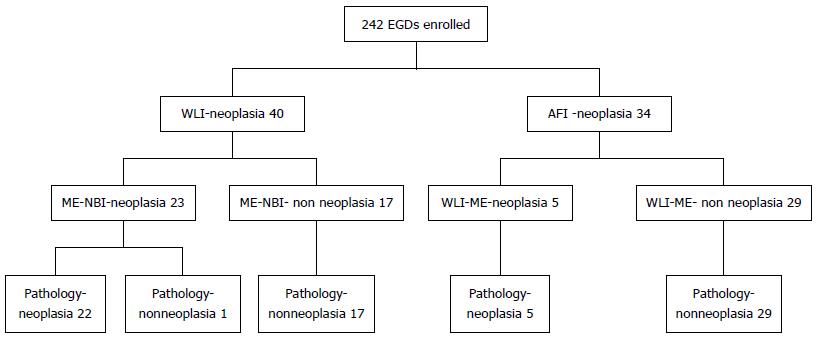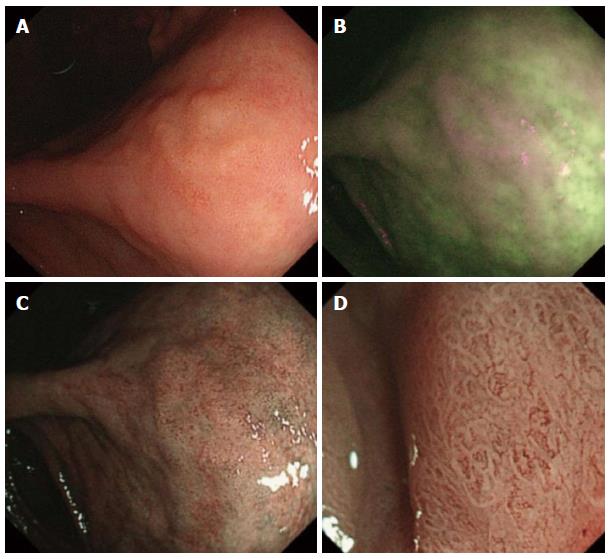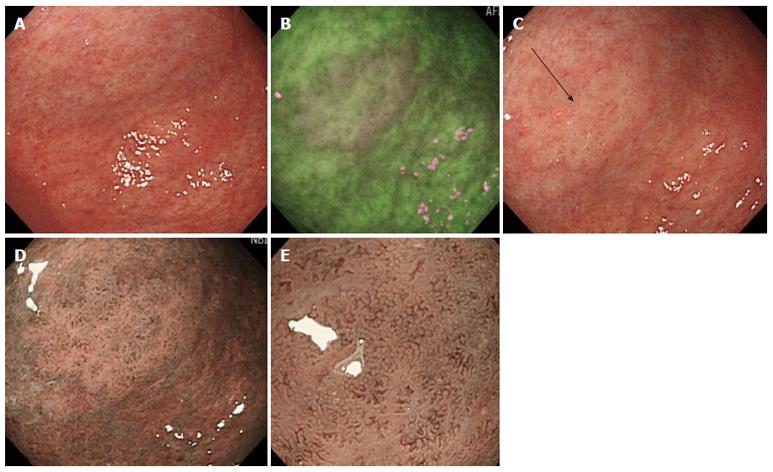Copyright
©2014 Baishideng Publishing Group Inc.
World J Gastroenterol. Nov 21, 2014; 20(43): 16311-16317
Published online Nov 21, 2014. doi: 10.3748/wjg.v20.i43.16311
Published online Nov 21, 2014. doi: 10.3748/wjg.v20.i43.16311
Figure 1 Flow diagram of neoplastic lesions detected by trimodal imaging endoscopy.
EGD: Esophagogastroduodenoscopy; WLI: White-light imaging; AFI: Autofluorescence imaging; ME: Magnifying endoscopy; NBI: Narrow-band imaging.
Figure 2 Protruded early gastric cancer.
A: Whitish lesion detected in white-light imaging; B: Magenta lesion in autofluorescence imaging; C: Demarcation line in narrow-band imaging (NBI); D: Irregular mucosal pattern and irregular vascular pattern in magnifying endoscopy with the NBI.
Figure 3 Protruded gastric adenoma.
A: Lesion not detected in white-light imaging; B: Magenta in autofluorescence imaging; C: Lesion detected in the second white-light imaging (arrow); D: Demarcation line in narrow-band imaging (NBI); E: Regular mucosal pattern and irregular vascular pattern in magnifying endoscopy with NBI.
- Citation: Imaeda H, Hosoe N, Kashiwagi K, Ida Y, Nakamura R, Suzuki H, Saito Y, Yahagi N, Iwao Y, Kitagawa Y, Hibi T, Ogata H, Kanai T. Surveillance using trimodal imaging endoscopy after endoscopic submucosal dissection for superficial gastric neoplasia. World J Gastroenterol 2014; 20(43): 16311-16317
- URL: https://www.wjgnet.com/1007-9327/full/v20/i43/16311.htm
- DOI: https://dx.doi.org/10.3748/wjg.v20.i43.16311











